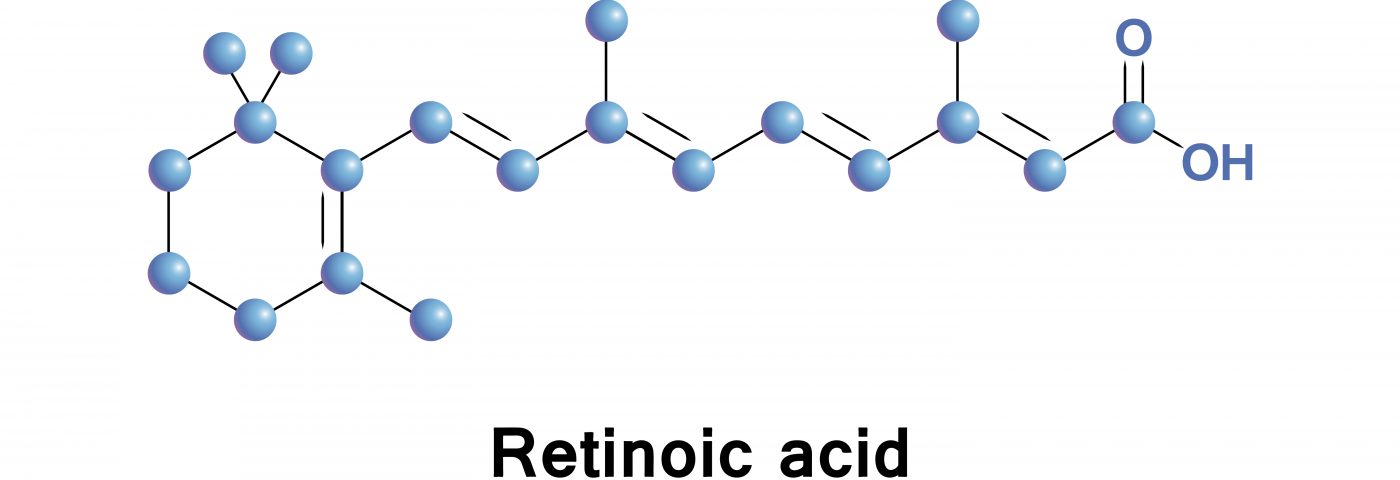Retinoic acid, a metabolite derived from vitamin A, protects both mice and humans from developing colorectal cancer, according to the results of a new study that also showed that cancer patients who quickly degrade retinoic acid fare worse than those with higher levels.
The study, “Normalizing Microbiota-Induced Retinoic Acid Deficiency Stimulates Protective CD8 T Cell-Mediated Immunity in Colorectal Cancer,” published in the journal Cell Immunity, explored how retinoic acid interacts with gut inflammation and the micro-organisms inhabiting it, and may lead to new approaches to treat colorectal cancer
“The intestine is constantly bombarded by foreign organisms,” Dr. Edgar Engleman, MD, professor of pathology and medicine at Stanford University Medical Center and the study’s senior author, said in a news release.
“As a result, its immune system is very complex. There’s a clear link in humans between inflammatory bowel disease, including ulcerative colitis, of colorectal cancer,” he said. “Retinoic acid has been known for years to be involved in suppressing inflammation in the intestine. We wanted to connect the dots and learn whether and how retinoic acid levels directly affect cancer development.”
Losing the Protection
Studying retinoic acid is, however, not a straightforward task, since the metabolite quickly breaks down when exposed to light. Accurate measurements of retinoic acid in the body are therefore difficult to obtain.
Together with colleagues at the University of California-Berkeley, the research team adapted a method called quantitative mass spectrometry so that it could measure retinoic acid in the gut of mice.
They treated the mice with one or both of two compounds that caused inflammation or triggered colorectal cancer. Mice who were treated with both compounds developed cancer within 10 weeks.
Mice treated with the inflammatory substance developed gut inflammation but not cancer. Researchers found that they also had significantly more retinoic acid in their guts than the mice who had developed cancer. Taking a closer look at the gut of the mice with cancer revealed they had less of an enzyme making the acid, and roughly four times more of an enzyme breaking it down, leading to a steady decline in the amount of the metabolite in the gut.
Of Mice and Men
This was the effect in mice — what about in humans? After all, mice and humans are different. The research team used stored samples of gut tissue obtained from people with either the inflammatory gut disease ulcerative colitis or colorectal cancer associated with ulcerative colitis. Since the samples had been stored, all retinoic acid was likely gone, but analyzing the enzymes responsible for production and breakdown of the metabolite, researchers could get a clue of what was going on.
Just as in mice, the researchers found lower levels of the enzyme producing retinoic acid and more of the degrading enzyme than in tissue from patients with gut inflammation but no cancer. They also noted that the more degradation enzyme a patient had, the shorter he or she tended to survive.
Surprisingly, when the team looked at tissue from colorectal cancer patients who did not have ulcerative colitis, they noted the same pattern of changes. This made them wonder if other types of gut inflammation were present in these patients, affecting the retinoic acid levels. And so, they went back to study mice.
Normal gut bacteria can sometimes cause inflammation, a fact the team was aware of. They figured that these bacteria may contribute to the loss of retinoic acid, and, as a consequence, cancer.
Indeed, when they treated mice with cancer with broad-spectrum antibiotics to get rid of the gut microbes, tumors were dramatically reduced. And retinoic acid levels went back to normal.
“We found that bacteria, or molecules produced by bacteria, can cause a massive inflammatory reaction in the gut that directly affects retinoic acid metabolism,” Engleman said. “Normally retinoic acid levels are regulated extremely tightly. This discovery could have important implications for the treatment of human colorectal cancer.”
Attempting to understand how retinoic acid can protect the gut from cancer, the research team found that it was activating on an immune cell type called CD8 T-cell. When activated, these cells then attacked cancer cells. In mice, researchers noted that lower levels of retinoic acid led to lower numbers of these T-cells in the gut, and more tumor growth.
“It’s become very clear through many studies that chronic, smoldering inflammation is a very important risk factor for many types of cancer,” Engleman said. “Now that we’ve shown a role for retinoic acid deficiency in colorectal cancer, we’d like to identify the specific microorganisms that initiate these changes in humans. Ultimately we hope to determine whether our findings could be useful for the prevention or treatment of colorectal cancer.”
Not a Lost Battle
The metabolic shift leading to lower retinoic acid in the mice likely allows tumor formation, but at this point, researchers could not really be sure of that. But replacing the metabolite is easy, so to test the idea they replenished retinoic acid stores by either giving mice supplements or by blocking the enzyme breaking it down.
This reduced the tumor burden in the mice. When researchers blocked the activity of retinoic acid, tumors started growing again.
The research team now wants to explore which specific bacteria triggers these changes in humans, and if the findings can be used to prevent or even treat colorectal cancer in humans.


